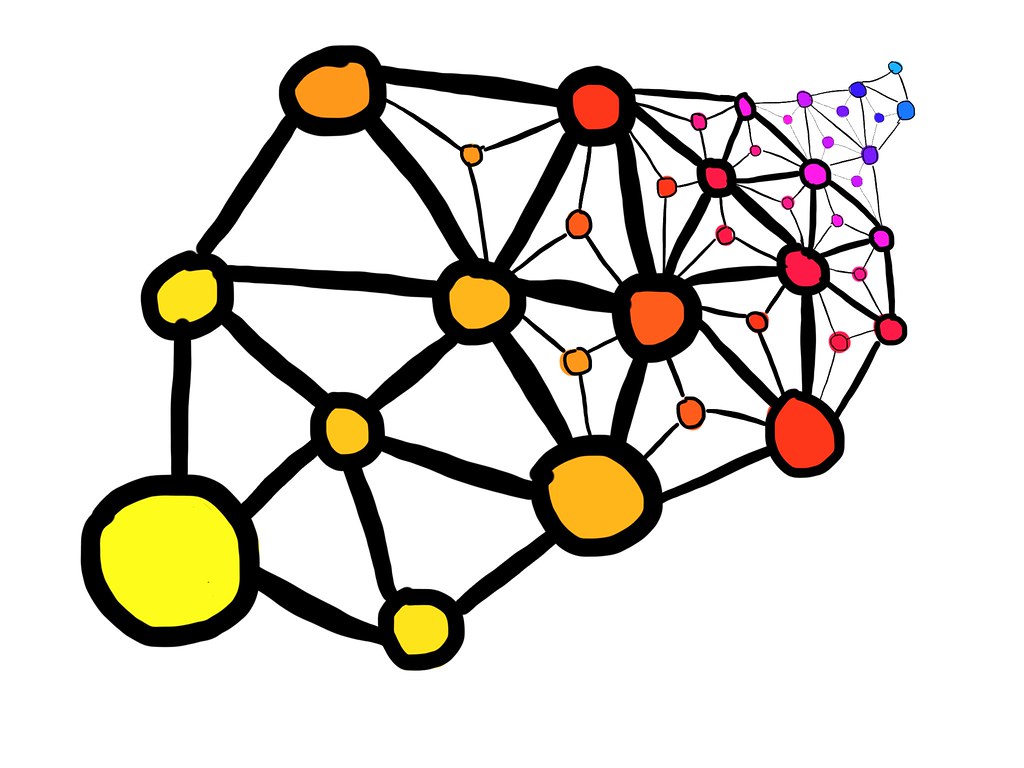
Understanding Link Building
Before diving into the nitty-gritty of link building strategies for SEO, I believe it’s crucial to first understand what link building is and why it’s important.
What is Link Building?
Link building is an SEO process that involves obtaining hyperlinks from other websites that direct back to your own site. These hyperlinks, also known as “backlinks”, “links”, “inbound links”, or “incoming links”, are composed of HTML—a language used to mark up text on website pages. The clickable and visible part of the link is called the anchor text (Moz).
Backlinks are essentially the paths created by links that enable crawlers, bots, or spiders to discover and index content. These digital creatures crawl the web by following the paths created by links, which is why link building is a fundamental aspect of SEO (Moz).
The Importance of Backlinks
Backlinks play an essential role in Search Engine Optimization (SEO) and serve as a ranking signal for search engines. Each backlink is considered as a vote for the value of the linked page, and pages with more backlinks tend to be ranked higher in search engine results (Moz).
High-quality backlinks from authoritative websites contribute to higher organic rankings and increased visibility in search engine results pages (source). It’s important to note that the value of backlinks extends beyond SEO. They also help people to discover new websites and navigate from one place to another on the web (Moz).
Building a diverse and natural backlink profile is critical for effective link building strategies. It involves obtaining links from a variety of sources, such as industry-related websites, social media platforms, and online directories (source).
Keep in mind that the quality of backlinks is more important than quantity. Organic, natural, and relevant links have more value and are more effective in improving search engine rankings compared to paid or spammy links (Semrush).
In the following sections, I’ll delve deeper into various effective link building strategies and advanced link building tactics to help you improve your website’s SEO performance.
Effective Link Building Strategies
Developing a robust link-building strategy is essential for improving your website’s SEO performance. By focusing on creating high-quality backlinks, you can enhance your site’s visibility, increase your rankings in search engine results, and drive more organic traffic to your website. Here, I’ll discuss two of the most effective link building strategies for SEO: guest blogging for backlinks and influencer collaboration.
Guest Blogging for Backlinks
Guest blogging is a powerful link building strategy where you contribute high-quality articles or blog posts to other websites in exchange for a link back to your own site (Semrush). By reaching out to relevant websites and offering to write guest posts, you can create valuable backlinks to your own website while also providing valuable content to the host website’s audience (source).
Here is how guest blogging works:
- Identify reputable blogs and websites in your niche.
- Reach out to them and propose a guest post topic.
- Write a high-quality article that provides value to their audience.
- Include a link back to your site in the author bio or within the content if it’s contextually relevant.
Guest blogging not only allows you to build backlinks but also helps you establish authority in your niche, expand your network, and attract a new audience to your website. If you’re interested in discovering more about this strategy, check out our post on effective link building strategies.
The Power of Influencer Collaboration
Building relationships with influencers in your industry can also significantly boost your link building efforts. Collaborating with influencers can lead to high-quality backlinks, as they may naturally link to your content when they mention you or your work (Search Engine Journal).
Here is how influencer collaboration works:
- Identify influencers in your industry.
- Reach out to them and propose a collaboration.
- Provide value to their audience through your content.
- Gain a backlink when they mention your work or your website.
Influencer collaboration not only helps you gain valuable backlinks but also increases your content’s reach, improves your brand visibility, and drives more traffic to your website. For more on this and other advanced link building tactics, visit our post on advanced link building tactics.
In conclusion, both guest blogging and influencer collaboration are powerful link building strategies for SEO that can significantly improve your website’s SEO performance. However, keep in mind that link building is not a one-time strategy but a continuous process that requires consistent effort and dedication. Stay updated with our latest posts on link building strategy techniques for more insights and strategies.
Advanced Link Building Techniques
When it comes to developing link building strategies for SEO, it’s important to incorporate some advanced techniques. Two such methodologies that I find to be particularly effective include the broken link strategy and the strategic use of anchor text in backlinks.
Exploring Broken Link Strategy
Broken link building is a strategy where one identifies broken links on other websites and reaches out to the site owner to suggest replacing the broken link with a link to a relevant and high-quality resource on their own website. Website owners often appreciate having broken links fixed and are willing to reciprocate with a link to your website (Search Engine Journal).
This strategy not only improves the user experience on the host site, but it also provides an opportunity to gain a valuable backlink. It’s a win-win situation. However, it requires some effort and a keen eye to identify these broken links.
You can learn more about this strategy in the article on broken link building strategy.
The Role of Anchor Text in Backlinks
Anchor text, the clickable text in a hyperlink, plays a significant role in the success of your link building efforts. The strategic use of anchor text in backlinks can significantly improve search engine rankings. It should be relevant to the linked page and contain keywords related to the target page’s content.
For instance, if you’re linking to an article about “advanced link building tactics”, the anchor text could be something like “explore these advanced link building tactics”. This tells search engines and users what the linked page is about, thus improving the relevance and potential ranking of the target page.
It’s essential to use diverse and natural anchor text and avoid over-optimization, which could lead to penalties from search engines.
Incorporating these advanced techniques into your link building strategy can greatly enhance your SEO efforts. For more information on link building techniques, visit the link building strategy techniques page on my website.
Monitoring Your Link Building Efforts
In addition to implementing link building strategies for SEO, it’s equally important to monitor and evaluate your efforts. This includes analyzing backlinks for their quality and effectiveness, as well as adjusting your strategy based on the results.
Tools for Backlink Analysis
There are numerous tools available that can assist you in analyzing backlinks. These tools can help you track the number of backlinks you’ve gained, identify the domains they’re coming from, and understand the relevance of the anchor text used in the links source.
When selecting a tool for backlink analysis, you should consider its ability to provide comprehensive and accurate data, ease of use, and cost-effectiveness. Some popular backlink analysis tools include:
- SEMrush
- Moz
- Ahrefs
- Majestic SEO
- Buzzsumo
It’s worth investing time to familiarize yourself with these tools and understand how they can aid in your link building efforts.
Evaluating Quality of Backlinks
Not all backlinks are created equal. The quality of a backlink can significantly impact your website’s SEO performance. High-quality backlinks from authoritative and relevant domains are viewed more favorably by search engines and can contribute positively to your website’s ranking source.
Here are some criteria to consider when evaluating the quality of backlinks:
- Domain Authority: Backlinks from high-authority domains carry more weight and can significantly boost your website’s SEO performance.
- Relevance: The relevance of the linking domain to your website’s content is crucial. Backlinks from relevant domains signal to search engines that your website’s content is valuable to your niche.
- Anchor Text: Anchor text should be relevant to the linked page and contain keywords related to the target page’s content source.
- Number of Backlinks: While the number of backlinks is important, it should not be the sole focus. Quality over quantity should be the guiding principle in your link building campaign.
Monitoring your link building efforts allows you to identify what’s working and what’s not, enabling you to refine your link building strategy for better results. By regularly analyzing and evaluating your backlinks, you can ensure that your SEO efforts are on the right track.
Ethical Considerations in Link Building
When pursuing link building strategies for SEO, it’s crucial to consider the ethical implications of your approach. This can not only protect your site from potential penalties but also contribute to a healthier, more trustworthy internet.
Understanding Ethical Link Building
Ethical link building, as defined by LinkedIn, involves acquiring backlinks to your website through legitimate and responsible means. The cornerstone of ethical link building is the creation of valuable, informative, and engaging content that others naturally want to link to. This could be blog posts, articles, infographics, videos, or other forms of content.
A few strategies fall under the umbrella of ethical link building. Guest blogging, for instance, involves writing posts for reputable blogs and websites in your niche. In return, you can often include a link back to your site in the author bio or within the content, provided it’s contextually relevant. This strategy can be explored further in our article on effective link building strategies.
Another tactic, known as broken link building, involves identifying and replacing broken links on other websites with a link to a relevant and high-quality resource on your site. You can learn more about this strategy in our article on broken link building strategy.
Collaborating with influencers in your industry can also lead to ethical link opportunities. They may naturally link to your content when they mention you or your work. For more advanced tactics, check out our article on advanced link building tactics.
Avoiding Unethical Practices
While it’s important to understand and implement ethical link building practices, it’s equally important to avoid unethical ones. Unethical practices, often referred to as ‘black hat’ SEO, include tactics like buying links, spamming comments with your links, or using automated programs to create links.
These tactics may offer short-term gains in terms of SEO, but they can lead to penalties from search engines in the long run. Google, for example, has made it clear that these practices violate their guidelines and can result in a site being removed from their search index altogether.
When in doubt, stick to ethical, or ‘white hat,’ link building practices. These strategies prioritize providing real value to users, and while they may take longer to produce results, the results are more likely to be sustainable and beneficial in the long run. Our white hat link building strategy article provides more details.
In summary, ethical link building is a critical component of any SEO strategy. By focusing on providing value and avoiding unethical practices, you can build a strong link profile that boosts your SEO and enhances your site’s reputation.
Utilizing Link Building in Social Media
Social media stands as an untapped goldmine for executing effective link building strategies. By leveraging the power of various social media platforms, we can boost our SEO efforts and secure valuable backlinks.
Social Media Platforms for Backlinks
Social media platforms are fertile grounds for generating backlinks to your website. Although social media links are typically ‘nofollow’ links and may not directly contribute to your site’s SEO, they play a crucial role in driving traffic and boosting visibility. This increased exposure can lead to valuable ‘dofollow’ backlinks when users share your content on their own websites or blogs.
Promoting your brand and content effectively on social media platforms can attract the right audience and stimulate engagement, which can subsequently result in backlinks. These platforms provide an excellent opportunity to broadcast your company announcements, leverage some of the most effective content strategies in marketing, and even generate traffic on a performance basis.
Engaging Communities for Links
In addition to social media platforms, online communities such as forums and industry-specific groups are a great place to share your content and secure backlinks. By actively engaging with these communities and contributing valuable information or resources, you can gain recognition and trust, which can lead to natural backlinks to your site.
These communities are often filled with individuals who share a common interest or industry relevance, making them a highly targeted audience for your content. By promoting your content in these communities, you can attract attention and generate backlinks, strengthening your link building strategy.
However, it’s essential to approach community engagement authentically and ethically. Blatant self-promotion or spammy behavior can harm your reputation and result in penalties. Instead, focus on providing value, fostering relationships, and gradually building up your presence.
Leveraging social media platforms and online communities to share your content and gain backlinks is a proven and viable link building strategy. This approach, combined with other high-quality link building methods, can help you dominate the SEO landscape.










